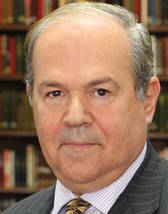Inherently Unresolved: Regional Politics and the Counter-ISIS Campaign
The first of two reports exploring international efforts to counter ISIS lays out the political backdrop to practical efforts to tackle the group
One year on from the start of the multinational coalition against ISIS, there have been some minor successes in pushing the group back in Iraq and Syria thanks in large part to US-backed Kurdish forces. Yet the group remains highly capable and seems no closer to defeat. Turkey will not tolerate any further expansion of Kurdish-held territory, control of Syria has fragmented between the regime and an array of armed groups, and Iraq is increasingly likely to split along sectarian lines.
There are no easy solutions, not least because of the kaleidoscopic interests at stake. With US commanders warning that the campaign may last at least a decade, more needs to be done to bring both regional and global actors to the table. In relation to Syria in particular, it is vital for the US, Russia, Iran and Saudi Arabia, among others, to move beyond the current paralysis over the future of Assad’s regime and seek a sustainable, non-sectarian settlement. This would be a significant step towards defeating ISIS.
Given the multifarious dynamics at play, however, this will certainly not be a straightforward path and, with events on the ground continuing to outstrip the pace of the diplomatic response, the international community must accept it is in it for the long haul.
WRITTEN BY
Jonathan Eyal
Associate Director, Strategic Research Partnerships
RUSI International



